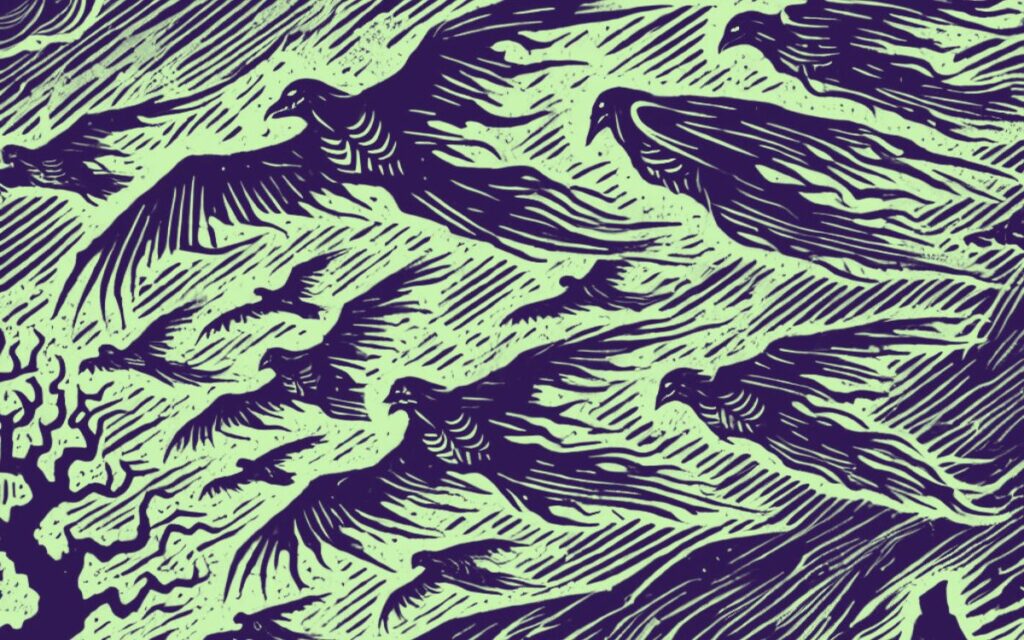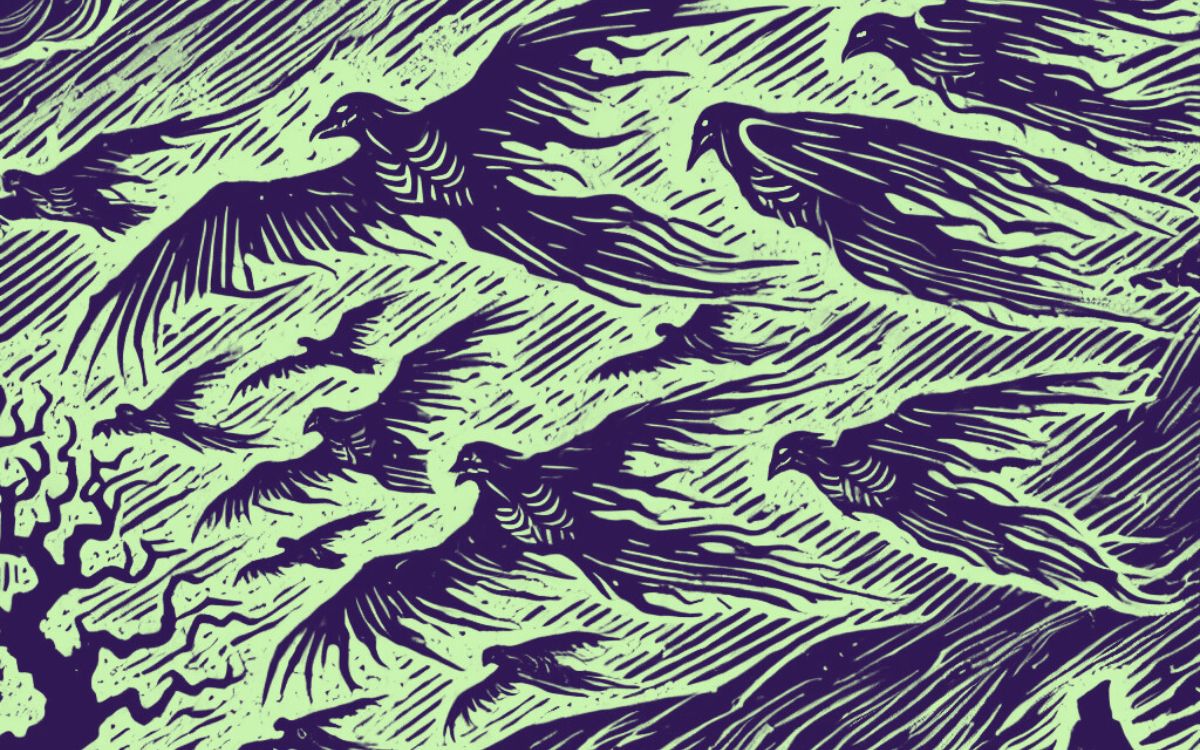Beware the eerie legend of the Sluagh, the unforgiven spirits of Celtic folklore that roam the skies, hunting for souls…

As Halloween draws near, the veil between the living and the dead thins, inviting us to explore ancient legends.
One such tale is that of the Sluagh, the restless spirits of the unforgiven dead in Irish and Scottish folklore.
The Sluagh (pronounced “sloo-ah”) comes from the Old Irish word slúag, meaning “host” or “army”, highlighting their overwhelming numbers.
These spirits are thought to be the souls of those who were neither accepted into heaven nor hell, nor welcomed in the Celtic Otherworld. They are the unforgiven dead—sinners, outcasts, or individuals with unresolved fates.
According to folklore, the Sluagh fly from the west, searching for souls to claim.
Often described as bird-like creatures or a dark, crescent-shaped cloud, they were once associated with the Fae.
However, unlike the often mischievous fairies, the Sluagh are malevolent, focused solely on stealing the souls of the living, particularly those nearing death.
The Flight of the Sluagh
The Sluagh are best known for their role in soul-stealing. Families would close windows facing west when a loved one was dying, hoping to prevent these spectral beings from entering and taking their soul.
The Sluagh were believed to hover over homes, waiting for a chance to snatch the spirit of the dying.
More disturbingly, some stories suggest that the Sluagh did not limit their hunt to the dying alone.
They were said to prey on the living, especially those wandering at night. These spirits were depicted as ghostly birds, shadowy figures, or swirling mists, often accompanied by eerie whispers or the distant sound of wind. Encountering them was believed to bring misfortune or even death.
In one chilling Scottish tale, a farmer was swept away by the Sluagh while tending his sheep. He was found the next day, cold and lifeless, his soul forever lost.
Such stories served as warnings to avoid remote areas after dark, where the Sluagh were believed to hunt.
The Sluagh and Halloween
The Sluagh are said to be most active during Samhain, the ancient Celtic festival marking the end of harvest and the beginning of winter, now known as Halloween.
On this night, the boundary between the living and the dead is at its weakest, allowing spirits to cross over.
The Sluagh, however, were seen as particularly dangerous, as their hunger for souls intensified during this time.
To ward them off, communities would extinguish fires and avoid venturing out after dark.
The belief was that the Sluagh, seeing no signs of life, would pass by. This practice may have influenced Halloween traditions, where fires were carefully tended and offerings were left to appease spirits.
Though ancient, the legend of the Sluagh still resonates in modern culture. They appear in literature, video games, and television, often as soul-hunters or dark harbingers of death.
In the Legacy of Kain series, they are depicted as scavengers of souls, while in shows like Supernatural, they serve as ominous figures of doom.
Their presence in modern horror highlights their enduring appeal. The Sluagh represent more than death, they symbolise the unresolved, the unforgiven, and the souls that wander without peace.
They remind us of the fearful limbo that exists between life and death, where some souls are condemned to roam the earth forever.
As Halloween approaches and the wind begins to howl, remember the Sluagh. Their legend reminds us that not all souls find peace, some are doomed to wander eternally, caught between worlds.
And as you close your windows and turn out the lights, ask yourself – what would it be like to hear the faint flapping of spectral wings or feel a chill as something passes by, searching for a soul to claim?
Could the Sluagh, ancient though they are, still roam the skies of the the UK and Ireland, unseen but never forgotten?
What do you think of the legend of the Sluagh? Have you heard any similar stories in your area? Share your thoughts in the comments below!



